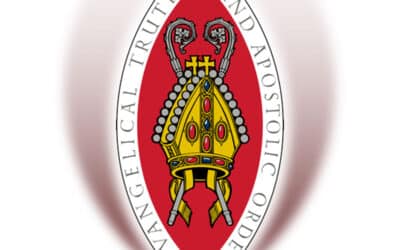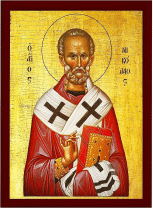Editor: The Rev Michael Burgess looks at great works of music.
Surely angels play Mozart at home
The German theologian, Karl Barth, is reputed to have said, “Whether the angels play only Bach in praising God, I am not quite sure; I am sure, however, that en famille they play Mozart.” It is a lovely image of angels in the heavenly courts above, mirroring the human enjoyment of music making here on earth. And what more wonderful music than Mozart’s! From child prodigy to fully mature composer in the space of just 35 years – encountering frustrations and disappointments, poorly paid and exploited, beset by problems of debt and ill-health – and yet rising above all that to create a wealth of music for voice and instrument that continues to lift the human heart.

Mozart was nothing if not life affirming in his music. He enjoyed life, in spite of the disasters and tragedies that occurred along the way. This from a letter he wrote to his father after the performance of one of his symphonies: “It was performed on Corpus Christi day with great applause. I was so happy that as soon as it was over I went off to the Palais Royal, where I had a large ice.” Enjoying this world, he had that rare ability to transcend it, and open up a greater world of beauty and harmony. That realisation caused Schubert to write in his diary in 1816, “O Mozart, immortal Mozart, how many, how infinitely many inspiring suggestions of a finer, better life have you left in our souls!”
As illustrations of that, we focus this month on two works, one early and one late in his composing life. In January 1773 Mozart wrote a motet, Exsultate, jubilate for a castrato who had appeared in one of his operas. It is almost a concerto in miniature for the voice. The opening Allegro calls on heaven to join in the praises of earth and leads into an Andante of great beauty, where Mary is praised as the mother who brings light to a darkened world. The work ends with a glorious Alleluia with notes cascading off the page and into the air. Perhaps Mozart had in mind a thank offering for the success of his opera Lucio Silla. Whatever the music’s origin, we cannot deny the inspiration and skill with which Mozart weaves together words and music to dazzle and transport the listener.
In the last year of his life in 1791, when his mortal body began to fail, his mind took on a new vitality with the composition of two operas, a clarinet concerto, a Requiem, and a wonderful, concentrated setting of Ave verum corpus. This motet in praise of Jesus on the cross and in the sacrament was written for the choirmaster at Baden. It is just two pages in the manuscript, written out by Mozart without any corrections. There are no flourishes and runs here as in the earlier work. The music is simple and yet sublime as Mozart conveys a sense of holiness and serenity. Michael Levey has written of this work: “Short but not slight, it seems to float like a cloud of incense on the air.” Here, as in all Mozart’s music, a creation of this world opens up for us that greater world where all is light and joy.



